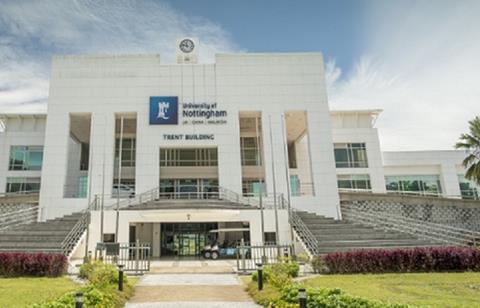
The University of Nottingham's Faculty of Engineering houses approximately 1,000 employees, including academics, technical staff, administrative roles and researchers.
Across these roles, there are vastly different mental wellbeing needs. This is only being exacerbated by increased uncertainty, self-isolation and home working during the current Coronavirus pandemic.
The university as a whole provides occupational health and GP services, as well as other provisions such as mental health first aiders. The Faculty of Engineering, however, has its own, holistic approach to wellbeing.
For the last year, working with provider Juice, the faculty has provided staff with a wide range of initiatives, including nutrition advice, step challenges, social events, yoga and mindfulness sessions, charity initiatives and more. These are shaped around Juice's 'five ways to mental wellbeing': connect, be active, keep learning, give to others and take notice.
At the moment, these comprehensive physical and mental wellbeing supports are largely separate from the university's occupational health provisions; however, Laura Walker, faculty wellbeing activities officer at the Faculty of Engineering, envisions a future in which there is a more all-encompassing approach.
"One of the things I want to work on in the future is having more of an integrated approach," she explains. "[The university's] counselling services are absolutely fantastic, and they put on workshops, which we send out to staff in case they want to go. I try to create that connectivity with the other things that are available.
"There is a bit more of a closing in, that we're starting to fit together a little bit more. It's like fitting a jigsaw together; there are so many pieces, and we're stronger together."
Occupational health provides a critical, invaluable service in looking after mental and physical health for university employees, but rather than maintaining this within its own silo, Walker wants each side of the support system to reach out and collaborate.
"One of my interests is merging biomedical approaches and more 'complementary' [or holistic] medicine, things like yoga and massage," she says. "When the two are married together things work a lot better, and it's fascinating to see how that's coming into play now.
"[Each approach] has something different to offer, all depending on the individual's mental health. Someone suffering with mental ill-health might be working with a GP to find pharmaceutical approaches, alongside the therapy of writing a blog, going to small-group [cognitive behavioural therapy (CBT)]. Being able to draw from each and every discipline makes sense."
In the face of the current Coronavirus crisis, and the uncertain future ahead for both staff and employers, the approach to health and wellbeing, and in particular mental health, must change with the times.
For example, Walker is working on adapting the faculty's monthly employee newsletter to signpost people to the support, occupational health or otherwise, that continues to be available to them while working remotely.
"It's one step at a time, there could be some real major positives that come from people being at home more, but people will [also] struggle," she concludes. "In the silence, we do have to deal with things we might not otherwise process, [but] eventually there's a sense of peace because you can go inward and have self-reflection."











